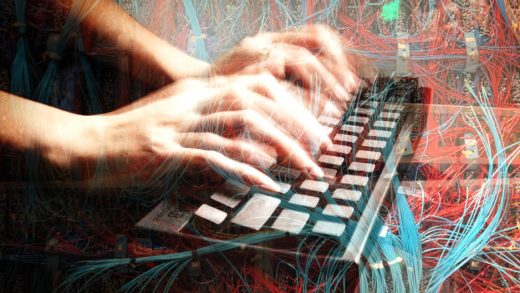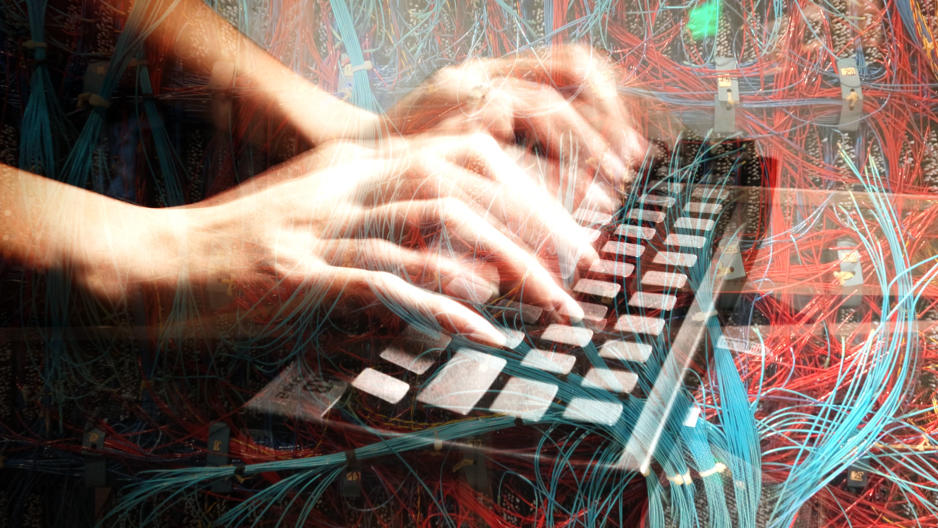This Is How AI Will Change Your Work In 2017
Artificial intelligence is growing fast. Recent research puts it as a $5 billion market by 2020, and Gartner estimates that 6 billion connected “things” will require AI support by 2018. Connected machines, wearables, and other business tools like voice assistants are already boosting productivity at work and at home.
Two reports just surfaced that tackle the troubling predictions that automation, artificial intelligence, and robots are going to supplant human workers. The McKinsey Global Institute and Glassdoor research indicates that we don’t have to worry that we humans will become obsolete.
Matt Gould, chief strategy officer at Arria NLG, U.K.-based company offering AI technology in data analytics and information delivery, explains that AI has the ability to distill expertise into the machine. “Knowledge work, for the first time, can be produced at volume from NLG-AI systems,” Gould says. “Far from killing the jobs of knowledge workers, this tends to free them up to do what they are paid to do—innovate, model, refine, and improve on the expertise of their business.”
So what exactly should we be looking out for as artificial intelligence becomes more prevalent? We asked the experts to weigh in on where they see AI headed this year.
For Jobseekers
Chris Bolte, CEO of Paysa, says AI will drive awareness and action for jobseekers. “Employees will have the ability to use technology to gain this awareness—monitoring their individual relationship to the job market, and when there is a change in that relationship,” he says. Most people aren’t paying attention to the job market until they need to find work. That results in an ad hoc approach to searching and applying for work
In the same way personalization works for e-commerce, Bolte predicts that the job hunt will evolve with AI by sending you alerts not only about job openings that fit your skill set but also when your salary is no longer competitive with the broader market, or even within your specific company. By extension, AI could also help identify when you are due for a promotion, as well as the likelihood you will actually get it. “Using AI, individuals will no longer be subject to randomness or coincidence and can rely on technology,” says Bolte.
For HR
Kris Duggan, CEO of BetterWorks, says that AI and machine learning will pave the way for HR 2.0, especially for opportunities to provide feedback to employees and get a holistic picture of what’s driving their work. Duggan says 2017 will witness the rise of data and analytics to help visualize behaviors of employees, from the time they were hired to their success down the road. “By using machine learning,” says Duggan, “companies can focus on building teams to support long-term goal achievement, instead of frantically hiring to fill immediate needs.”
Rob May, founder and CEO of Talla, a company developing technology for chat platforms like Slack, Hipchat, and others believes that AI will be able to automate some of HR’s more mundane tasks. May says currently chatbots like Talla’s can handle about 10% to 20% of most daily activity such as onboarding and training, employee polling, and answering company policy questions.
“I wouldn’t suggest replacing the face-to-face employee engagement pieces of onboarding with a bot,” May points out. “The right way to use the bot is to replace information overload with information precision.” Many new hires get a ton of information during their first couple of days on the job, much of which won’t get retained. A bot, says May, “can be used to drip information to the new employee over days or weeks or longer, meaning that person can get the right information at the right time, once other things have been learned that make the information more relevant, valuable, and memorable.”
For IT
Doron Gordon, CEO and founder at Samanage, a cloud-based IT service desk provider, explains that chatbots can facilitate communication between staff and management. “Instead of going from department to department, employees will use chatbots to request services, streamlining service management and consolidating service processes,” Gordon explains. More specifically, Gordon says machine learning will directly impact the way IT teams service employees. “AI-integrated platforms will take into account the types of issues an employee is having with a device and how many requests they are sending,” says Gordon. “From there, the solution can alert IT that a specific employee needs a new device.”
For Developers
Hamesh Chawla, vice president of engineering at Zephyr, a software-testing platform, envisions AI driving both innovation and evolution for developers because of a shift in focus towards data science.
“As a starting point, developers need to go in with the mind-set that democratizing the data will be a key factor in their development model,” Chawla says. Once the data is in place, says Chawla, machine learning models must be put together, which is an area that would need education in data science to build the right actionable insights. “The key here is that data is not an afterthought in this new model, rather front and center of development,” he says.
For Admins
Shaun Ritchie, CEO and cofounder of Teem, believes that AI will outrank traditional business tactics like social media by helping to streamline every aspect of work. Specifically, Ritchie says, “Scheduling meetings, booking rooms, and reserving resources is a job in and of itself.” Connecting AI to existing technology such as meeting-room booking and calendar-syncing platforms, says Ritchie, will eliminate stolen conference rooms and unused tech tools. Virtual home assistants like Echo and Alexa will also enter the workplace, further personalizing interactions and automating meetings.
For Financial Teams
Gould, Arria NLG’s chief strategy officer, says that other functions such as writing and compiling documents and slide presentations that describe a quarterly snapshot of a company’s health (aka a CFO Board-Pack) used to take days or weeks for a team of financial controllers to compile and release. AI enables this all to be delivered in seconds, says Gould “as though an army of analysts were constantly on call to provide the expert insight.”
As such, Gould says forget about fearing AI and make friends with it. Given the chance, AI “will lift [workers] from the daily drudgery of writing up their smarts and communicating their insights.”
Fast Company , Read Full Story
(16)



